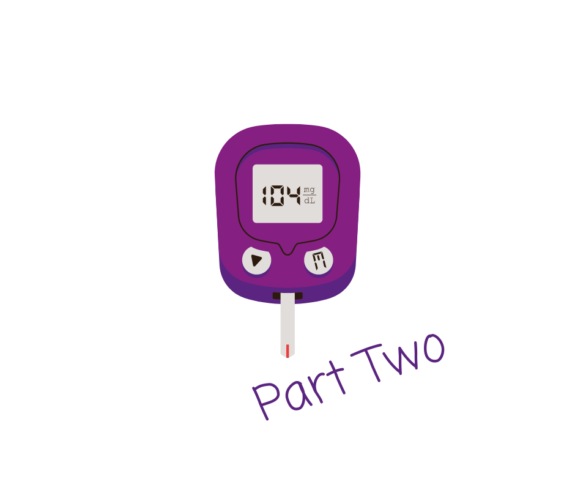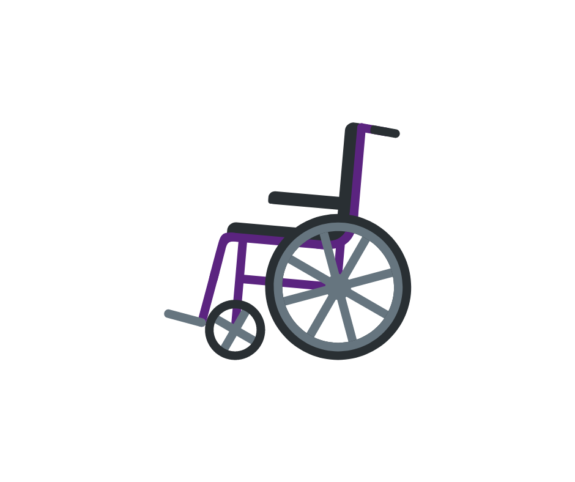Welcome to Diabetes – Part 2! Part 1 focused mostly on Type 1 so in this blog, we’ll be looking at Type 2, Gestational Diabetes, and myths and misconceptions.
Type 2
Type 2 diabetes is different from Type 1 in that it’s not an autoimmune problem but a metabolic one. Over time, the body simply loses its ability to respond effectively to glucose which leads to high levels of it in the blood. The pancreas then tries to produce enough insulin to keep up with demand but ultimately, isn’t able to. It becomes so overworked that it just gets too exhausted and stops working properly.
Fortunately, most Type 2 diabetics can control their symptoms with diet and lifestyle changes, including cutting down on sugar and carbohydrates to limit the amount of glucose in the bloodstream (under the Doctor’s supervision of course). There are some Type 2 diabetics that do need to take insulin but this is usually only after having had the condition for several years.
Signs and Symptoms:
For Type 2 diabetes, the symptoms are very similar to Type 1 which include:
-
Excessive thirst
-
Extreme tiredness
-
Urinating more frequently
-
Increased hunger
-
Loss of muscle mass or weight
-
Dizziness
-
Blurred Vision
However, unlike Type 1 where symptoms can manifest in weeks or days, in Type 2 they can present themselves over a period of months or even years. It’s quite common for people with Type 2 diabetes to be living with it for a long time before it’s diagnosed and it may only be picked up during routine health checks or chance conversations. For some, it may never be diagnosed at all which is a bit of a scary thought.
Complications
Again, as with Type 1, the long-term complications of dealing with Type 2 are very similar. People dealing with Type 2 are at greater risk of heart disease, stroke, kidney disease, eye disease, and nerve damage that can lead to amputation if not caught early. The key is to make sure there is constant communication between the diabetic and their health team.
Myths and Misconceptions
There are many things we think we know about diabetes that simply aren’t true so let’s take a look at some of the more popular theories out there.
Myth 1 – It’s all about being overweight.
There is a misconception that all people with Type 2 must be obese or unhealthy, but that’s simply not true. It’s not all about weight. Yes, obesity and diet are major risk factors for developing Type 2 but it doesn’t mean that every obese person will develop diabetes or that everyone with Type 2 is overweight. There are many other risk factors that can come into play such as:
-
being older
-
having a close relative with diabetes
-
having high blood pressure
Myth 2 – Diabetics must avoid sugar at all costs.
Diabetics are absolutely allowed to have sugar but the key is balancing it out and not having it too often. Naturally occurring sugars such as those found in fruits are also allowed and even recommended as fruit is high in fiber and full of vitamins. It’s all about management and monitoring.
Myth 3 – Type 2 diabetes is only mild so no need to worry.
This is completely false. Any kind of diabetes, if not treated, can lead to complications. It’s something that needs to be taken very seriously and definitely in conjunction with a doctor.
Myth 4 – People with diabetes shouldn’t play sports.
Tell that to Sir Steve Redgrave who managed to get several Olympic Gold medals all while dealing with diabetes. In fact, exercise is an important factor in keeping a healthy lifestyle and can help your muscles use up the glucose in your blood without having to rely on insulin. A discussion with a doctor can help determine the best exercise regime.
Myth 5 – There’s nothing you can do to prevent diabetes.
For Type 1 diabetics this is true. It has nothing to do with diet and all about the immune system and the pancreas deciding not to work properly. However, Type 2 can, in many cases although not all, be prevented by being active, getting exercise, and eating a balanced diet.
Gestational Diabetes
Gestational diabetes occurs when a pregnant woman develops diabetes during her pregnancy, usually between the twenty-fourth and twenty-eighth week. Women who do develop this usually didn’t have it before the pregnancy and will most likely go back to how they were after the birth. However, if it is found in the first twelve weeks then it is most likely that the woman had diabetes before and just didn’t know it. This is unlikely to go away after childbirth.
With all of the hormone changes that occur during pregnancy, many women have little to no symptoms and it is often only caught during routine prenatal tests. There are some indicators of who could potentially develop gestational diabetes including:
-
Being overweight or obese
-
Having had gestational diabetes before
-
A family history of diabetes
-
Having had a large baby (10lb plus) previously
-
Coming from a BAME background
Having any of these indicators does not mean that women absolutely will develop gestational diabetes, it just puts them in a higher risk category. Gestational diabetes can cause problems during pregnancy if not taken seriously but, as with Type 2, having a healthy diet and lifestyle can help offset any potential risks.
It’s estimated that approximately 4.8 million people in the U.K. currently suffer from diabetes. 8% are recorded as having Type 1 diabetes, 2 % have much rarer forms and around 90% are dealing with Type 2. Diabetes.org.uk estimates that if we don’t do anything to reduce those numbers then they will increase to 5 million in just under 4 years. That’s a lot of people with an illness that can be incredibly debilitating and for many, can be prevented.
If you’re worried about your risk of diabetes, then it’s really important to talk to your doctor. Diabetes, no matter what kind, can have a huge impact on your life and your mental health and is not something to be ignored.
Resources
If you’re currently suffering from or think you might be suffering from diabetes, then take a look at some of the resources below.
https://www.diabetes.co.uk/type2-diabetes.html
https://www.diabetes.co.uk/type1-diabetes.html
https://www.nhs.uk/conditions/Diabetes/
https://www.diabetes.org.uk/professionals/position-statements-reports/statistics
https://www.diabetes.org.uk/diabetes-the-basics/other-types-of-diabetes
https://www.diabetes.org.uk/diabetes-the-basics/gestational-diabetes
https://www.healthline.com/health/diabetes/best-blogs-of-the-year#1
https://www.better-living.co.uk/living-with-diabetes
https://www.mana.md/common-misconceptions-about-diabetes/
https://www.diabetes.org.uk/diabetes-the-basics/myths-and-faqs
https://www.healthywomen.org/content/article/10-common-misconceptions-about-diabetes












